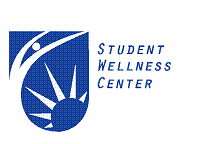
Each year in the United States, on average:
More than 200,000 people are hospitalized from flu complications.
20,000 of those hospitalized are children younger than 5 years old.
36,000 people die from flu.
Take action to protect yourself and your loved ones from the flu.
The Centers for Disease Control and Prevention (CDC) urges you to take the following steps to protect yourself and others from influenza (the flu):
CDC recommends a yearly flu vaccine as the first and most important step in protecting against this serious disease.
While there are many different flu viruses, the flu vaccine protects against the three main flu strains that research indicates will cause the most illness during the flu season.
The vaccine can protect you from getting sick from these three viruses or it can make your illness milder if you get a different flu virus.
Getting a vaccine is very important for people at high risk for serious flu complications, including young children, pregnant women, people with chronic health conditions like asthma, diabetes or heart or lung disease, and people 65 and older.
People who live with or care for those at high risk should also get a flu vaccine to protect their high-risk contact.
Take everyday preventive actions.
Cover your nose and mouth with a tissue when you cough or sneeze. Throw the tissue in the trash after you use it.
Wash your hands often with soap and water, especially after you cough or sneeze. Alcohol-based hand cleaners are also effective.
Try to avoid close contact with sick people.
If you get the flu, CDC recommends that you stay home from work or school and limit contact with others to keep from infecting them.
Avoid touching your eyes, nose or mouth. Germs spread this way.
Take flu antiviral drugs if your doctor recommends them.
If you do get the flu, antiviral drugs are an important treatment option. (They are not a substitute for vaccination.)
Antiviral drugs are prescription medicines (pills, liquid or an inhaler) that fight against the flu by keeping flu viruses from reproducing in your body.
Antiviral drugs can make your illness milder and make you feel better faster. They may also prevent serious flu complications. This could be especially important for people at high risk.
For treatment, antiviral drugs work best if started soon after getting sick (within 2 days of symptoms).
Flu-like symptoms include fever (usually high), headache, extreme tiredness, dry cough, sore throat, runny or stuffy nose and muscle aches.
For more information on the flu, the flu vaccination, and what to do if you get sick, visit CDC's website
